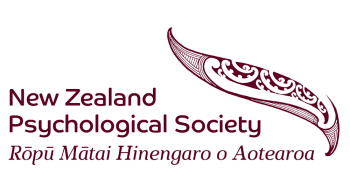
He Aroha Whakato, He Aroha Puta Mai
If kindness is sown then kindness you shall receive
Campaign concept by Janet Peters
“Kindness shouldn't just be something we only think about once a year. Being kind to others, and being kind to ourselves, can be good for our psychological wellbeing all year round”
Research on “Being kind” shows that kindness is good for a person’s mental health. Pro-social behaviour – altruism, cooperation, trust and compassion – are all necessary ingredients of a harmonious and well-functioning society.
Random acts of kindness, such as helping neighbours with their groceries, were found to have the strongest association with overall health than other more formalised prosocial behaviours, such as weekly volunteering at an organisation. These random acts, called “informal giving”, tend to be more varied and are unlikely to be monotonous, and could lead to the creation of new social connections that then benefit one’s health, both physically and mentally.
In Māori culture such kind acts were/are supported by hapū and iwi, who did these things because there was an established system based on whakapapa.
“Every person's Mana derives from their social commitment to others.”
Research on Kindness
A new analysis of decades of research (led by Assistant Professor Bryant Hui from the Hong Kong Polytechnic University) shows that when we are kind to others, we are healthier and happier. We all know that it’s good to be kind to others. Kindness is an important virtue for sustaining relationships, which helps to build a trusting and cooperative society. You may have also heard that kindness makes you happier and healthier. But what does that mean for you? What acts of kindness will make us happiest, and who tends to benefit the most? Read more
The British Psychological Society has published an article " How being kind benefits us psychologically" by Dr Amra Rao. She says that in a turbulent world there is more need for humility and kindness more than ever. Our collective efforts to be kind can help to build better selves and stronger communities.
This STRENGTHS DEVELOPMENT GUIDE has some kindness resources- see below for some excerpts:
What are the benefits of this strength?
- People who give to others, in small and in large ways, tend to be happier as a result.
- People who are consistently kind and giving tend to be healthier and live longer than their less generous counterparts.
- Kind people are often likeable to others, which can provide opportunities to develop meaningful relationships.
- Kindness directed inward (self-compassion) can contribute to higher self-esteem, less anxiety and depression, and greater life satisfaction.
- Kind acts are likely to inspire others to kindness. What does this mean about the individual?
It is one of the beautiful compensations of life that no man can sincerely try to help another without helping himself. Ralph Waldo
Do it more!
- Some research notes there are benefits of practicing several random acts of kindness all in one day. Look for opportunities to conduct random acts of kindness and consider how you might set a plan to mix up the variety of kind acts committed each week.
- Speaking kindly to others – When I get ready to leave for the day (cue), I’ll think about my day and identify someone to whom I can talk to or email on my way out regarding something that demonstrates my genuine interest or concern about them (routine). I’ll celebrate by heading home (reward).
- Practice performing random acts of kindness.
- Practice self-compassion, letting go of self-judgment.
- Notice and keep track of kind acts throughout the day.
- Do something kind, generous, or nurturing for oneself.
